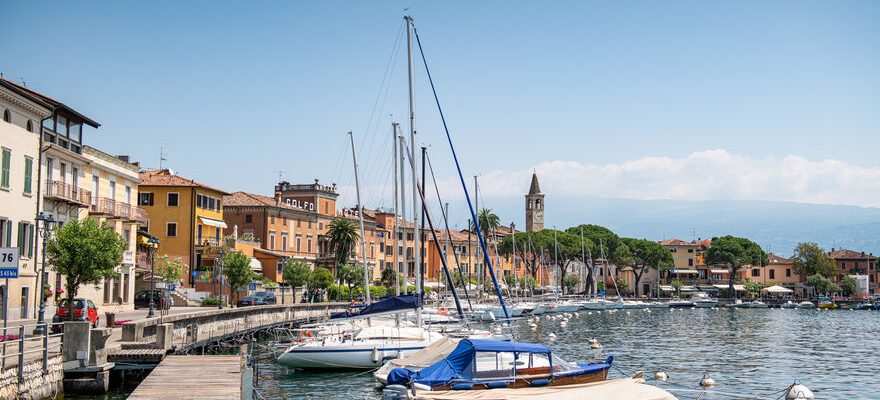Further suspected cases of dengue fever were reported on Lake Garda in Italy. The affected communities have raised the alarm and taken action.
At the Lake Garda There is currently growing concern about dengue fever. It was on Italy’s largest lake and one of the most popular holiday destinations for Germans, according to a report by South Tyrol news According to the report, the first suspected cases of dengue fever came within a few days in August. A total of two people showed typical symptoms of the disease and were classified as suspected cases.
In the meantime, more cases have become known and the European Disease Authority ECDC is also keeping an eye on the region. In your latest report The ECDC speaks of five cases of dengue fever in Lombardy since the first week of August – so three more people have become ill. The cases are also described as autochthonous. This means: Dengue fever was acquired locally and those affected were not infected with the tropical virus in other countries where the virus is native, but in Italy or on Lake Garda.
This has also been the case since August 24th Foreign Office Travelers to Italy about dengue fever. You should avoid mosquito bites and seek advice from tropical and/or travel health professionals regarding vaccination against dengue fever.
By the way: It’s not just mosquitoes that can be dangerous on Lake Garda, the lake itself also poses dangers for swimmers in some places. There are also dangerous animals on Lake Garda – snakes as well as bears, lynxes and wolves, for example.
What is dengue fever and how is it transmitted?
also read
The Robert Koch Institute (RKI) According to Dengue fever is a mosquito-borne viral disease that occurs particularly in the tropics and subtropics. It is estimated that around 400 million people worldwide are infected with the virus every year. According to the RKI, most people become ill without symptoms (around 75 percent) or only develop a mild feverish illness.
If the course is severe, severe abdominal pain, persistent vomiting, rapid breathing, bleeding mucous membranes, vomiting blood, exhaustion or restlessness can occur. In particularly severe cases, symptoms of shock are also possible. According to the Ludwig Maximilian University of Munich, typical symptoms are symptoms similar to flu with fever, headaches and severe body aches. Occasionally a skin rash can also occur.
Dengue epidemics According to the World Health Organization (WHO), they usually occur seasonally. The transmission of dengue fever often peaks after a rainy season. What is particularly important is the mosquito population, whose reproduction and feeding patterns are also influenced by air temperatures, precipitation and humidity.
Dengue fever on Gardadee: Where were the suspected cases reported?
The first two suspected cases of dengue fever are loud South Tyrol news occurred within a few days first in Manerba del Garda and then in Padenghe sul Garda – both places are in the southwest of Lake Garda. The communities are now closed to their residents Protective measures against and against mosquitoes called.
According to the ECDC, the three other cases (as of September 2, 2023) were also found in Lombardy – a region in northern Italy that also includes parts of Lake Garda. The symptoms began for those infected between August 2nd and 21st. According to the authority, it cannot be ruled out that further cases could occur in the affected regions and throughout Italy. Dengue fever was probably transmitted by the diurnal Aedes mosquito.
By the way: In addition to the cases on Lake Garda and in Lombardy, the ECDC is reporting another dengue case in Italy. This occurred in the Lazio region of central Italy.
Dengue fever suspected cases: What measures have been taken on Lake Garda?
A report from the Italian news site GardaPost.it According to this, regulations were imposed in the two initially affected communities to contain possible further dengue fever cases or suspected cases. Residents are asked not to allow water to accumulate, for example in flower pots or their saucers, in order to prevent mosquitoes from multiplying.
In addition, long, light-colored clothing should be worn and insect repellent should be applied to clothing and skin to avoid mosquito bites. Mosquito nets should also be attached to doors and windows.
In addition, according to the ECDC, the Italian health authority has also intervened and introduced measures to prevent and identify further cases of dengue fever.

